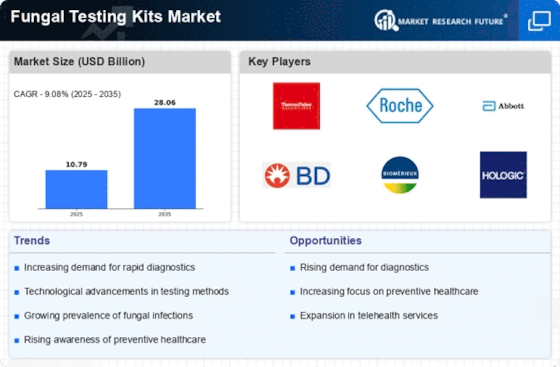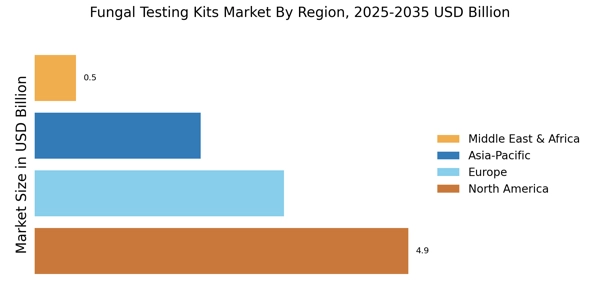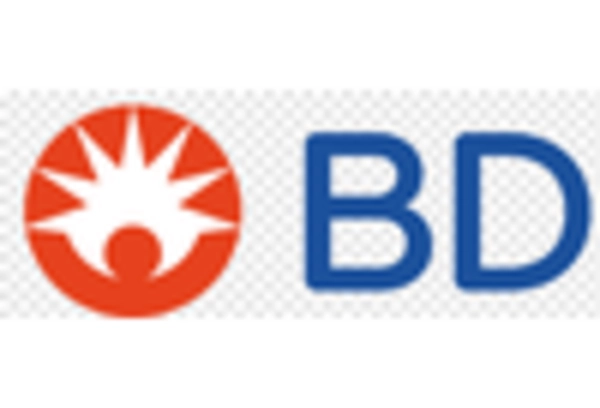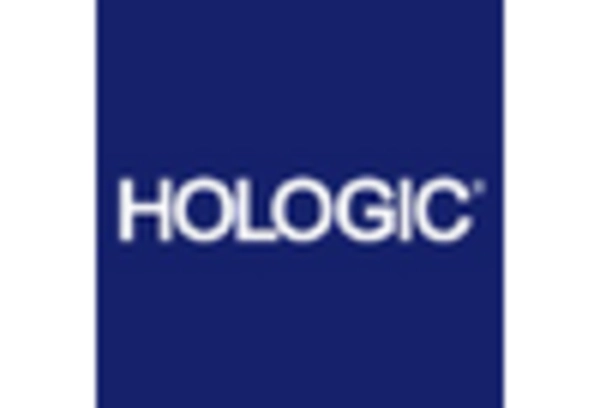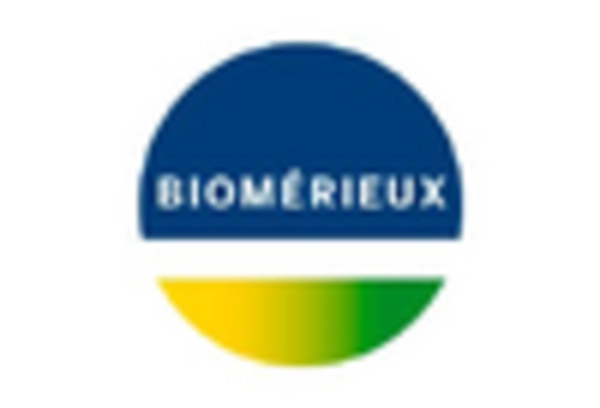Rising Incidence of Fungal Infections
The increasing prevalence of fungal infections is a primary driver for the Fungal Testing Kits Market. Reports indicate that the incidence of invasive fungal infections has been on the rise, particularly among immunocompromised individuals. This trend necessitates the development and deployment of effective diagnostic tools, such as fungal testing kits, to ensure timely and accurate detection. The World Health Organization has highlighted that fungal infections contribute significantly to morbidity and mortality rates, particularly in developing regions. As awareness grows regarding the impact of these infections, healthcare providers are likely to invest more in diagnostic solutions, thereby propelling the Fungal Testing Kits Market forward. Furthermore, the demand for rapid and reliable testing methods is expected to increase, as early diagnosis is crucial for effective treatment.
Increased Focus on Preventive Healthcare
The growing emphasis on preventive healthcare is influencing the Fungal Testing Kits Market. As healthcare providers shift their focus from reactive to proactive measures, the demand for early detection tools, including fungal testing kits, is likely to increase. Preventive healthcare strategies aim to identify potential health issues before they escalate, which is particularly relevant in the context of fungal infections. The rising awareness among patients and healthcare professionals about the importance of early diagnosis is driving the adoption of these testing kits. Furthermore, educational campaigns and initiatives promoting preventive measures are expected to enhance the visibility of fungal testing solutions. This trend may lead to a more informed patient population, ultimately contributing to the growth of the Fungal Testing Kits Market.
Regulatory Support for Diagnostic Innovations
Regulatory frameworks are increasingly supporting innovations within the Fungal Testing Kits Market. Authorities are recognizing the need for rapid and accurate diagnostic tools to combat the rising threat of fungal infections. Streamlined approval processes for new testing kits and technologies are being implemented, facilitating quicker access to the market. This regulatory support encourages manufacturers to invest in research and development, leading to the introduction of novel testing solutions. As a result, the Fungal Testing Kits Market is likely to experience an influx of innovative products designed to meet the evolving needs of healthcare providers. Additionally, collaboration between regulatory bodies and industry stakeholders may foster an environment conducive to the advancement of diagnostic technologies, further propelling market growth.
Technological Innovations in Diagnostic Tools
Technological advancements play a pivotal role in shaping the Fungal Testing Kits Market. Innovations such as polymerase chain reaction (PCR) and next-generation sequencing (NGS) have revolutionized the way fungal infections are diagnosed. These technologies offer enhanced sensitivity and specificity, allowing for the detection of a wide range of fungal pathogens in a single test. The integration of automation and artificial intelligence in diagnostic processes further streamlines workflows, reducing turnaround times for results. As healthcare facilities seek to improve patient outcomes and operational efficiency, the adoption of these advanced testing kits is likely to increase. Market data suggests that the segment of molecular diagnostics within the Fungal Testing Kits Market is expected to witness substantial growth, driven by the demand for precise and rapid testing solutions.
Growing Investment in Healthcare Infrastructure
Investment in healthcare infrastructure is a significant driver for the Fungal Testing Kits Market. Governments and private entities are increasingly allocating resources to enhance healthcare facilities, particularly in regions with high rates of fungal infections. This investment often includes the procurement of advanced diagnostic tools, such as fungal testing kits, to improve disease management and patient care. For instance, initiatives aimed at strengthening laboratory capabilities and expanding access to diagnostic services are becoming more prevalent. As healthcare systems evolve, the demand for reliable and efficient testing solutions is expected to rise, thereby fostering growth in the Fungal Testing Kits Market. Additionally, partnerships between public health organizations and private companies may further facilitate the development and distribution of innovative testing kits.


